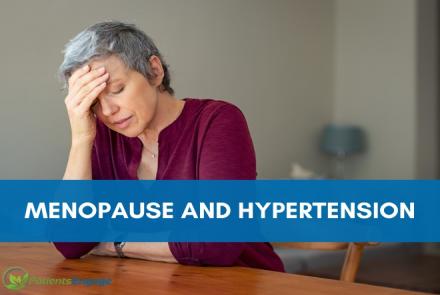The goal of treatment is to bring the person back to an euthyroid state (state of having normal thyroid gland function), hence necessitating lifelong thyroid hormone replacement therapy. Levothyroxine which is a synthetic T4 hormone is the preferred choice of treatment. It is usually prescribed once a day. L-triiodothyronine which is synthetic T3 is used less frequently due to a shorter half-life. Combination of the two synthetic hormones is available but with no significant…
Latest Stories
- Diagnosis of hypothyroidism will be based on a full clinical history, physical examination and blood tests. In some cases, ultrasound of the neck may also be prescribed. Blood test of serum TSH and free T4 levels is the more definitive diagnostic tool. Based on the results, the type of hypothyroidism can be identified. TYPE SERUM TSH FREE T4 Primary Hypothyroidism High Low Secondary Hypothyroidism Low or normal Low Subclinical Hypothyroidism High (on…
- The following are the types of hypothyroidism - Primary hypothyroidism is the most common type of hypothyroidism. It occurs when the dysfunction is in the thyroid gland itself. Central hypothyroidism Secondary hypothyroidism occurs when there is dysfunction in the pituitary gland. Tertiary hypothyroidism results from hypothalamus disorders. Subclinical or Underactive Thyroid is the early form of thyroid failure when T4 levels are still normal. It is seen in 3-8% of the…
- Symptoms of hypothyroidism are often vague and non-specific, commonly confused as signs of aging, menopause, depression, vitamin deficiencies, diabetes etc. This often leads to missed or delayed diagnosis. Common symptoms of hypothyroidism are listed in the table below: Symptoms of primary hypothyroidism General Fatigue, Hoarse Voice Cardiac Bradycardia, Diastolic Hypertension, Pericardial effusion Gastrointestinal Weight gain, Decreased appetite,…
- There are a few causes of hypothyroidism. The most common cause of hypothyroidism is Autoimmune thyroid disease. Other causes include: Type Underlying causative factor Autoimmune Atrophic autoimmune thyroiditis, Hashimoto’s thyroiditis Iodine deficiency Poor intake of dietary iodine Iatrogenic Radioiodine therapy, Removal of thyroid glands Medication side-effect Amiodarone, Interferon, Rifampicin, Lithium, Methimazole, Propylthiouracil, Thalidomide, Sunitinib…
- What is Hypothyroidism The thyroid is an endocrine gland situated at the base of the neck. It is a vital gland that produces three major hormones : T3 (Triiodothyronine), T4 (Thyroxine) and Calcitonin. These hormones play a major role in the growth, metabolism and development of the human body. (Image captured from https://www.hormones-australia.org.au/the-endocrine-system/thyroid/ ) When there is an insufficient secretion of the T3 and T4 hormones, it leads to a condition termed…
- Symptoms of hypertension in women are different from men and often mistaken for menopausal symptoms. Dr. Shital Patel explains the connection between menopause and high blood pressure, and how menopausal women can prevent hypertension. Women approaching their middle-age may be living with undiagnosed hypertension (high blood pressure). Doctors warn that women may miss out on correct diagnosis because their symptoms are mistaken for menopause. Women may present with symptoms such as chest pain,…
- Patients with advanced cancers often contemplate the time burden of their cancer care. What does this exactly entail? Dr Arjun Gupta, an Oncologist and Researcher, recently wrote a paper about Time Toxicity for Cancer patients. He helps us understand this new concept and how it can affect quality of life for patients. What is ‘’time toxicity’’? We have seen tremendous progress in oncology in the past few decades. Yet, for advanced solid cancers, average survival benefits offered by new…
- There is increased global awareness of Long-Covid. Dr Arvind Nune, Consultant Rheumatologist & General Physician in the United Kingdom explains Long-Covid symptoms, how to diagnose and manage Long-Covid. What is Long-Covid? Some patients recuperating from acute COVID-19 infection develop various symptoms that may last for several weeks to months. This has been widely known as “long Covid”. Long-Covid is defined as a long-term sequel of a SARS-CoV-2 infection,…















